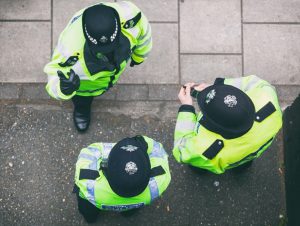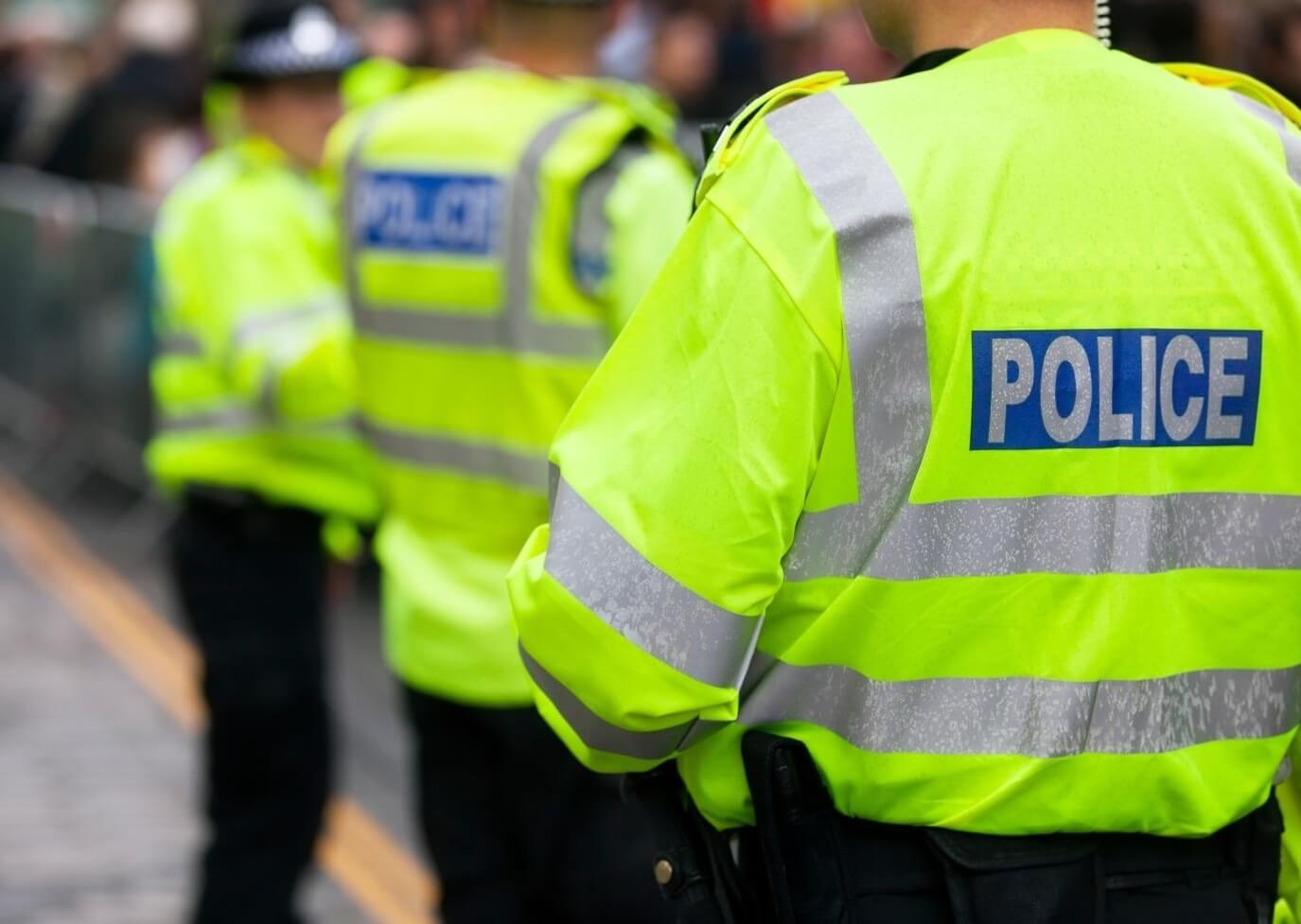To become a police officer means you are tasked with protecting the public, deterring crime, and enforcing the law. They patrol neighborhoods, respond to emergencies, and investigate crimes. They also help protect the public and follow up on crimes committed within their region. Becoming a police officer is a fulfilling career that requires physical fitness and communication skills. It also requires a sense of justice. If you want to join the police force, this guide will take you through how to become a police officer in the UK, the qualifications you need, and the skills you need to have.
What Does a Police Officer Do?
Policers are a key member of the society as they have many responsibilities. They protect people and properties in different manners. They are responsible for patrolling neighbourhoods and investigating severe crimes. According to their duties, the roles and ranks of policers are different. Essential responsibilities are:
- Patrolling Areas: Officers travel certain routes or monitor certain locations to provide public safety, prevent crime and respond to calls for service and accidents. They might cover the area by foot or by vehicle.
- Emergency Response: Police may be the first to arrive on the scene of an accident, robbery, or assault. They deal with the victims and secure the crime scene.
- Investigating Crimes: To become a police officer, you investigate crimes ranging from minor offences, such as traffic violations, to major cases, such as burglary, narcotics trafficking, or violent crime, by gathering evidence, questioning witnesses, and consulting with detectives.
- Arresting Suspects: To become a police officer, you can arrest anyone suspected of committing a crime if the appropriate procedures are followed.
- Maintaining Public Order: keeping crowds under control at large events, protests, or public disturbances to avoid escalation and ensure that public gatherings stay calm.
- Community Engagement: Trust with local communities and the public is a core part of a police officer’s job. Officers interact with residents, business people and community leaders to address local issues and promote security.
- Report Writing: To become a police officer, you must fill up reports about the incidents, tests and investigations involved. These reports are used in the court of law and for record purposes.

Average Police Officer Salary in the UK
The annual pay for a police officer in the United Kingdom depends on the length of service, location and rank. A newly appointed police constable can earn from £23,000 to £26,000 annually.
For those with experience, salaries rise, and police in the mid-level service earn between £30,000 and £40,000 a year. Senior officers like sergeants and chief inspectors can make over £50,000 per year. In addition, police officers may be eligible for overtime pay, shift pay and benefits such as pension plans and paid leave.
Key Skills for a Successful Police Officer
What makes a good police officer? Being a police officer requires both physical and mental skills. The most important skills are:
- Good Communication Skills: To become a police officer, you must talk to co-workers, witnesses, suspects, and the public clearly and concisely, give instructions, ask questions, and prepare written reports.
- Problem-Solving and Critical Thinking: Cops deal with complicated, high-stress situations regularly. This means they have to work quickly, think on their feet, evaluate risks, and decide the most practical way to deal with problems and keep people safe.
- Physical Fitness: Physical fitness is a priority in police jobs. To become a police officer, you must be physically fit to run after a robber, arrest a suspect, or spend long hours sitting in a patrol car or doing paperwork.
- Empathy and Interpersonal Skills: Police routinely encounter people in stressful situations – victims of crime or people in crisis – and empathy and the ability to handle stress can help build trust and lower tensions.
- Resilience and Emotional Strength: Police work is stressful since it involves dealing with accidents, violent crimes, and other emotionally difficult situations. To become a police officer, you must have the strength to not get too stressed out.
- Working together and communicating with others: To become a police officer, you work with their police colleagues, other emergency services, and external agencies. Candidates must be able to work as part of a team and with others.
- Integrity and Responsibility: To become a police officer, you have great authority and responsibility. To justify this authority and responsibility and maintain the public’s trust, police officers must act with integrity and within the law and make decisions that are clearly in the public interest.

Steps to Become a Police Officer in the UK
Becoming a police officer in the UK involves meeting specific entry requirements, completing training, and gaining practical experience. Here’s how you can pursue a career in law enforcement:
- Meet the Basic Requirements: To become a police officer in the UK, you must meet certain eligibility criteria:
- Be at least 18 years old.
- Be a UK citizen, a citizen of the EU, or have indefinite leave to remain.
- Pass security checks and a thorough background check.
- Have a good level of physical fitness and pass a fitness test.
- Be free of serious criminal convictions.
- Driving Licence: In addition, some police forces may require a full UK driving licence and the ability to pass a medical examination to ensure you are fit for duty.
- Choose a Route into Policing: There are several routes to become a police officer in the UK. The main pathways include:
- Police Constable Degree Apprenticeship (PCDA): This is a three-year paid apprenticeship that allows you to earn a degree while training as a police officer. You will work as a constable while studying for a degree in Professional Policing Practice.
- Degree Holder Entry Programme (DHEP): This is a two-year training programme for individuals who already hold a degree in any subject. You will receive on-the-job training and study for a Graduate Diploma in Professional Policing Practice.
- Pre-Join Degree in Professional Policing: You can complete a degree in Professional Policing at a university before applying to join a police force. This degree typically takes three years and covers all aspects of law enforcement.
- Practical Experience: Each route includes practical experience in policing, training in key skills, and academic study.
- Apply to a Police Force: Once you have chosen your route into policing, you can apply to a police force in the area where you want to work. Police recruitment is competitive, so ensure that your application highlights your relevant skills, experience, and motivation for joining the police.
The application process typically involves:- Completing an online application form.
- Undergoing an initial interview.
- Attending an assessment centre, where you will complete exercises, role plays, and interviews to assess your suitability for the role.
- Pass the Police Selection Process: After applying, you will go through a series of assessments to determine your fitness and suitability for the role. This includes:
- Fitness test: A physical test to assess your endurance, strength, and agility.
- Medical exam: A thorough medical examination to ensure you are fit to carry out police duties.
- Background checks: Checks to ensure you meet the legal and security requirements for working in law enforcement.
- Assessment centre: Includes role-playing exercises, interviews, and written tests to evaluate your decision-making, communication, and problem-solving abilities.
- Complete Police Training: Once accepted, you will undergo formal training at a police training centre. Training typically lasts two to three years, depending on your route into policing. During this time, you will learn about the law, investigative techniques, public safety, and how to manage conflict situations.
Police training includes both classroom learning and practical fieldwork. You will also complete probationary training where you work alongside experienced officers to gain hands-on experience in real-world situations. - Gain Experience as a Police Officer: After completing your training, you will begin working as a police constable. During your first few years on the job, you will gain experience in a range of policing duties, from patrolling neighbourhoods to investigating crimes. Over time, you may choose to specialize in areas such as traffic policing, criminal investigation, or community engagement.
- Consider Specialization or Promotion: As you gain experience, there are opportunities to specialize in specific areas of policing, such as:
- Criminal Investigation Department (CID): Investigating serious crimes, such as murder or sexual assault.
- Counter-Terrorism: Working to prevent and respond to terrorism-related threats.
- Traffic Policing: Focusing on road safety and traffic law enforcement.
- Firearms Officer: Specializing in the use of firearms in high-risk situations.
- Community Policing: Building relationships with local communities to prevent crime and resolve issues.
- Get Promoted: Additionally, you can work toward promotion to higher ranks, such as sergeant, inspector, or chief inspector.

Tips for Aspiring Police Officers
- Prepare for the Fitness Test: Police work is physically demanding, so staying in good shape is essential. Regular exercise, including cardio and strength training, will help you prepare for the fitness test.
- Develop Strong Communication Skills: Being able to communicate effectively with people from different backgrounds is critical for success as a police officer. Practice active listening and clear communication to build this skill.
- Gain Relevant Experience: Volunteering as a Special Constable or working in community safety can give you valuable experience in law enforcement and help strengthen your application.
Frequently Asked Questions
Why Should You Become a Police Officer?
Joining the police force is a great career. As an officer of the law, you will help your community by protecting and serving the public, preventing crime and bringing justice to those who break the law. Many challenges and responsibilities come with the job. Still, there are opportunities for promotion, specialisation and personal and professional growth. Police officers are vital members of society, and their work is meaningful and fulfilling.
Is a Career as a Police Officer Right for You?
Suppose you’re in good physical condition, emotionally stable, a person of integrity, and dedicated to serving the public. In that case, you should consider a career as a police officer. If you enjoy solving problems, work well under stress, and have a sense of justice, a police officer job is a good choice. Police work is strenuous, and some assignments are dangerous or stressful. Still, those who embrace the cause of law enforcement are very satisfied with the job.
What Are the Salary Prospects for Police Officers in the UK?
The starting basic pay for a police constable is between £23,000 and £26,000 a year. Officers can see their income rise between £30,000 and £40,000 or more with experience. The pay range for senior officers in supervisory roles such asors is between £40,000 to £50,000 or above, depending on rank and location. Overtime and shift allowances and other bonuses add extra earnings, especially in high-demand areas.
What Qualifications Are Needed to Become a Police Officer?
Before you can become a police officer in the UK, you have to prove that you meet certain eligibility criteria and pass background checks. Then, you go on to complete the police recruitment process. There are many different ways to enter policing, including the Police Constable Degree Apprenticeship (PCDA), the Degree Holder Entry Programme (DHEP), an accelerated option for graduates, and completing a degree in Professional Policing. Whichever route you enter, you will spend significant time learning on the job and in a classroom.
Do You Need Work Experience to Start a Career in Policing?
Work experience isn’t a strict requirement for applying for the police. Still, it can help your application and provide insight into what it might be like to work in the role of having relevant experience in community safety or security or as a Special Constable. Most applicants find it helpful to have volunteered or worked in roles that improve their communication and problem-solving skills before applying to the police.
What Is the Career Outlook for Police Officers?
Demand for police officers is always high, as people want to be safe in their communities, and nobody wants to be a victim of crime. Roles such as detective, firearms officer or counter-terrorism specialist are highly sought. Police officers can develop a long-term career with variety and progression. Suppose they gain experience and continue to develop their skills. In that case, they can move into senior positions or transfer to specialist units.
What Are the Career Progression Options for Police Officers?
In the police service, there are many ways to develop your career. You can climb the promotion ladder from police constable to sergeant, inspector, chief inspector, and more. You can also specialise in different aspects of policing, such as criminal investigation (CID), traffic policing, community policing or counter-terrorism. Many police officers also train in particular fields of expertise, such as firearms, forensic or public order roles, which can help them progress in their careers.
What Are the Exit Options and Opportunities Beyond Policing?
There are numerous other sectors where the skills and experience of a police officer are transferable – including security, criminal justice, investigation and community safety – and it is not uncommon for former police officers to move into private security, risk management, consulting or law enforcement training careers. Others might move into teaching, social work or legal professions, given their deep understanding of how law enforcement, crime prevention and community engagement can be undertaken.


